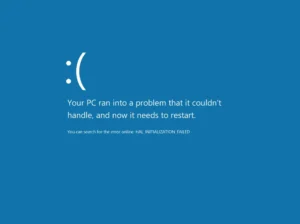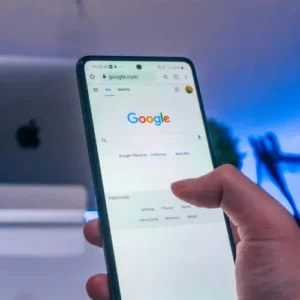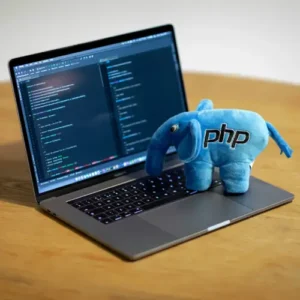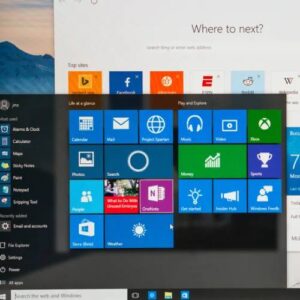Pay-per-click (PPC) advertising on search engines like Google does more than just attract attention; it can also help convert interest into sales.
“An appliances retailer noticed there were no ads on Google with the keyword air-conditioning units, so he created one,” Econsultancy’s Chris Lake recalls. “A large hotel chain had a breakdown, so he Googled air-conditioning units and ended up with a £12 million contract. He only spent a few pennies on the advertisement.”
You may not succeed on this scale, but if you can put your business in front of a potential customer at the exact moment they want to buy, your chances of making a sale skyrocket. Pay-per-click marketing is a cost-effective way to increase profits with the right combination of planning and initiative.
What exactly is pay-per-click marketing?
Traditional advertising requires you to pay to have your ad displayed or broadcast. However, with pay-per-click advertising, you only pay when someone clicks on your ad.
PPC advertising on search engines such as Google and Microsoft Advertising is the most well-known. Social media platforms such as Facebook are also PPC advertising options.
Lake defines PPC ads as “sponsored links on search engine pages.” “The businesses listed here pay to appear under a specific search phrase, but they only pay when someone clicks on their ad.”
“Because you bid for position, if my PPC ad is more relevant or I offer more than you for a potential customer’s click, my ad will appear above yours.”
Why should you use PPC advertising?
PPC advertising can be used to increase brand awareness. However, pay-per-click advertising is most effective when you want to encourage customers to act quickly. For example, purchasing a product or joining your mailing list.
There are several benefits to using PPC:
You can get your PPC ads in front of the right people by identifying keywords that match what your target customers are searching for online.
You only pay when someone clicks on your advertisement. This takes them to a landing page on your website, where you can persuade them to take the next step, such as purchasing a product.
You determine the value of a visitor to your company and set your advertising bids accordingly.
You can keep your costs under control by setting a total advertising budget limit.
You can experiment with various options and receive a detailed analysis of how well each advertising campaign is performing.
What is the cost of PPC advertising?
The competitiveness of your market, the value of your product, and your regular marketing spend are all likely to influence your PPC costs. The higher the price you must pay to appear prominently in the listings, the more competitive your market and the more expensive your product.
However, the amount you want to pay per click should be determined by your marketing budget as well as your online conversion rates. For example, if you normally set aside 10% of the retail value of the £100 shoes you sell for sales and marketing, you should maintain this practice.
If you know that one out of every ten visitors to your website will buy your shoes, you can afford to pay up to £1 per click, which equates to £10 per sale, or 10% of the retail value of the shoes.
There are free tools available to help you generate keyword ideas and determine how much to bid. You should experiment with different keywords to see which ones provide the best return on your advertising investment.
How to Launch a Pay-Per-Click Advertising Campaign
“Before you begin, consider what you want to achieve with PPC marketing,” Lake suggests. “Are you trying to sell a product, drive traffic to your website, or get email newsletter subscribers?”
Determine your objectives. Do you want to increase your sales, sign-ups, and inquiries?
Choose where you want to advertise. For most businesses, advertising on search engines with Google AdWords or Microsoft Advertising is a good option. Create an account by signing up.
Select the keywords for which you want to bid.
Set your bids for various keywords and choose a daily or monthly budget.
Write your PPC ad and include a link to a relevant and convincing landing page on your website.
Keep an eye on things and keep improving your keywords as you discover what works.
“Think about the buyer’s journey,” Lake suggests. They’ll start with a broad search and then narrow it down to specific makes, models, and colors. This is the time to bid higher on specific phrases that will increase your chances of making a sale.
Monitoring your PPC campaign
Tracking advertising performance assists you in meeting your marketing objectives. Website analytics tools show you where your visitors are coming from, whether it’s through pay-per-click advertisements, regular search engine listings, or referrals from other websites.
Analytics allows you to see exactly what your website visitors are doing. You can see which ads are producing the desired results and calculate how much each successful conversion costs you.
Knowing which channels – and which PPC keywords – are successful will allow you to fine-tune your strategy and allocate more resources to methods that work for you.
“Spend more once you’ve found a successful formula for converting interest into sales,” Lake advises. “Pay-per-click is like a supermarket putting fruit up front – you put the right thing in front of the right people at the right time.”










